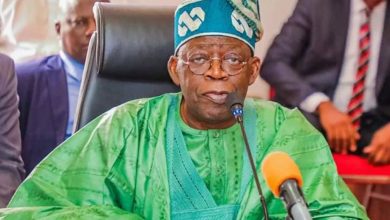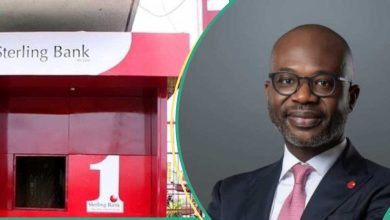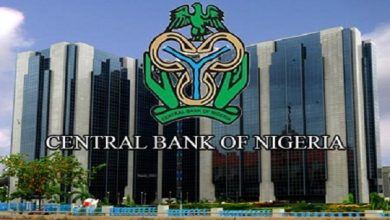How Emefiele Put in Place a Sound Financial System

By Amos Adetunji
No doubt , events of the last couple of years indicate that Godwin Emefiele ,the man saddled with the responsibility of managing the monetary system, is determined to leave the system better than he met it.
An immediate reference point is the delay in the release of some bank’s financial statements that ordinarily should be out at this time even though the banks have long submitted the documents for the Central Bank scrutiny and approval. Up till now some banks’ reports for 2022 financial year are still subjected to serious scrutiny and yet to be approved and released.
The Central Bank usually ensures that all by banks certain critical prudential requirements .Under the regime of Mr Emefiele , the apex bank has been doing this with a difference , leaving no stones unturned in order to ensure the financial system remains sound for the business of financial intermediation .
The CBN mandates all banks licensed to carry out banking business in Nigeria to perform an annual internal capital adequacy assessment process and forward copies of their reports to the CBN after the end of the year. Failure to comply with this obligation puts a bank at risk of having its banking licence revoked
Sources say, there has been a series of back and forth between the regulator and the banks, in its bid to ensure that they get it right especially with regards meeting prudential thresholds. This is especially with regards to systematically important banks.
CBN’s Framework for the Regulation and Supervision of Domestic Systemically Important Banks 2014 (the D-SIB Framework) mandates that banks classified as systemically important banks maintain a minimum capital ratio of 15 per cent and set aside an additional surcharge of 1 per cent of their respective minimum required capital adequacy ratio (CAR).
Underscoring the importance of this, are the associated penalties, albeit softened by rising inflation and eroding naira value; any Deposit Money Bank designated as a systemically important bank that fails to comply with the D-SIB Framework or any other CBN-specified standards and requirements applicable to systemically important banks will be liable for a fine of not less than 5 million naira, and an additional penalty of 200,000 naira for each day the failure persists. Failure by any bank to maintain the CAR stipulated by the CBN constitutes a ground for the revocation of the bank’s banking license.
On Liquidity, the CBN requires all banks operating in Nigeria to ensure that their level of cash flow is matched by expected receipts, so that banks always have enough cash to meet the requests of their depositors. This is to ensure that each bank’s cash balance plus assets, when compared to the total liabilities owed by each bank, is high enough for the bank to meet its obligations as they fall due. The CBN sets out the minimum liquidity ratio benchmarks for the banking sector in its Monetary, Credit, Foreign Trade and Exchange Policy Guidelines (the MCFT Policy Guidelines).
‘The delay in the release of the audited accounts of banks for the financial year 2022 is symbolic. The outcomes for many top banks indicate a thorough, no nonsense job by the regulatory authorities. This is unique as it gives credibility to the banks reports and it enhances the image of CBN. The delay is unusual but laudable’, our source confirms.
The tough supervisory stance of the regulatory authorities is no doubt paying off . . Recently the CBN governor had, in a recent Monetary Policy Committee (MPC) meeting extolled the banks for meeting minimum thresholds and thus are in good standing. .
While responding to questions on whether Nigerian banks are insulated from the collapse of Silicon Valley Bank in the United States, Emefiele had retorted that Nigerian banks are healthy and remain insulated against such risks having met all the ‘prudential guidelines’ it set for the financial system.
According to him, Nigeria is one of the few countries in the world with a cash reserve deposit requirement.
“This has been there even before I started banking that when you deposit your money in a bank, a certain percentage of that deposit is serialised by the Central Bank of Nigeria to ensure that when there is a kind of liquidity crisis, that money is available to that bank for them to use to solve that liquidity problem so that depositors do not lose their money.
“We also have liquidity ratio… (a) specified liquid asset against total deposit of banks either held in cash in bank vault… or treasury bills, OMO bills and different other liquid instruments and in Nigeria our ratio is minimum of 30 per cent, banks keep above that,” he said.
The CBN governor noted that the liquidity ratio is about 43 per cent, the cash reserve about 32.5 per cent, while the loan deposit ratio is about 52.47 per cent,
He also explained that despite maintaining these guidelines, the banks remain profitable.
According to him, the ROI has remained relatively strong even though when banks convert these to dollars, they seem weaker but at the same time, the banks have continued to make a profit and pay good dividends to their shareholders.
“Nigeria, again, is one of those countries in the world where even after a bank has declared profit and paid taxes, a certain percentage of its profit must be set aside to build retained earnings and capital.
“If you are a small bank, it’s going to be 25 per cent. One-quarter of whatever profit you make is set aside and built into what we call the statutory reserve fund whether to improve the capital of that bank. If you are a big bank, it then reduces to 15 per cent,” he said.
Emefiele has done a lot stabilize the financial system unknown to those outside the system . Indeed, a lot is going on in the financial system that the CBN is working hard to mitigate without making noise. It is immediately recalled that no one would have known the issues that bedeviled First Bank recently had the CBN not intervened to stave-off an imminent crisis. That action by the CBN revealed its commitment to good corporate governance. The First Bank Board had attempted to change its management to satisfy personal interest. The regulator stuck to its grounds and punished the perpetrators and allowed the AdesolaAdeduntan- led management to continue. It is recalled that Adeduntan was ousted in a palace coup, which the CBN exposed as motivated by self-serving reasons.
Apart from revealing that the move does not have regulatory approval, it was further exposed by the CBN that First Bank had been on a sort of life support in terms of regulatory forbearances and other sorts of financial and regulatory support since 2016 and that the action could cause a run on the systematically important bank and consequently jolt the whole financial system. Consequently, the CBN removed all directors of FBN and those of its parent company, FBN Holdings Plc., with immediate effect, to stave off a boardroom crisis.
Beyond the health of the financial system, Emefiele is keen on achieving the objectives of the CBN’s cashless policy. The argument that the CBN Governor is in the eye of the storm because he redesigned some denominations of the naira notes is unfounded and disingenuous . In that regard, the CBN has not done anything illegal. It is perfectly within its purview to seek to control money supply, redesign the national currency and check counterfeiting. It may be argued that more time should be given to allow the new notes to circulate as has been done in the United Kingdom in a similar situation, but this cannot be a reason for the current hullabaloo!
Emefiele argued that the currency redesign was in part a bulwark against inflation. He may have been proven right, given that the exchange rate has been relatively stable for a while, even if the December effect may have had something to do with that as well.
His move to redesign the naira was in furtherance of that policy. He looked to having the apex bank have control of an estimated N2.7 trillion ($6 billion) that was outside the banking system. The move, the CBN said, was crucial for managing an inflationary environment that was high at 21.82 per cent in December, according to data from the National Bureau of Statistics (NBS). Beside, currency management is a key function of the CBN, as enshrined in Section 2 (b) of the CBN Act 2007
Unfortunately,he played into the hands of self-serving politicians who hoodwinked him into using the situation for their advantage to the detriment of the general public; as the CBN supplied billions of the new currency notes into the system through the banks, a huge chunk ended in the hands of the crafty politicians to execute the February 2 5th presidential and senatorial elections.
While the naira redesign had unintended consequences, the cashless policy has had a good run under Emefiele. For example, the number of ATMs rose from 10,865 in 2011 to 19,355 in 2021. The number of Point of Sale (PoS) terminals rose from around 155,000 to 1.1 million as of April 2022. Cash continues to lead payment options in Nigeria, with debit cards and mobile payments the most popular cashless choices while credit cards struggle to make a mark on the payments landscape.
Emefiele had hoped to also use the naira redesign policy to mop up excess liquidity in the system to manage down inflation, not so as inflation remained high at 21.83 in January 2023. Analysts have not put the blame squarely on Emefiele given that inflation is a global phenomenon and that there is such a thing called imported inflation. This looks excusable given that Nigeria is an import dependent economy, with 2021 accounting for $52.19 billion, a 46.65% increase from 2020, according to Macrotrends. China alone accounted for 27.82% of these imports.
Godwin Emefiele has been a far more hands-on regulator and administrator. His remit is monetary policy but under his watch the CBN has been at the centre of everything, completely over-stretched beyond its traditional mandate.
In the face of the total abdication of responsibility by other departments of state, Emefiele’s CBN stepped early into the void, and did whatever was possible to prioritize Nigeria’s economic interest, and the people’s well-being. When the people who had been employed to manage Nigeria’s fiscal policy could not deliver, and chose instead to demonstrate gross and insufferable incompetence, Emefiele stepped in with policies hitherto reserved for the fiscal space. The Federal Ministry of Agriculture has been unimpressive since 2015, it doesn’t even have a reliable Farmers’ Register. Emefiele’s CBN stepped in with the Anchor Borrowers’ Programme and began to talk about value chain addition in the agriculture sector. COVID happened. The CBN again under Emefiele’s watch stepped in and mobilized the private sector to provide necessary support. Although we are still waiting for a proper audit of all the contracts that were awarded to wives and girlfriends under that scheme, nobody can deny the leadership that Emefiele and the CBN provided. This same CBN introduced anti-money laundering and counter-terrorism financing regulations.
There several critical arenas that the CBN’s interventions made considerable impact. In its determined effort to influence economic stability, some analysts believe that the CBN has intermittently veered into areas that are not its core mandate. It could be recalled that the CBN’s Anchor Borrowers’ Programme, a financing model for small-holder farmers, is part of the Federal government’s efforts to boost the nation’s rice production, supply, and distribution and consumption value chain.
Significantly, the Anchor Borrowers Program (APB) has empowered thousands of rice farmers in the country, while working hand-in-hand with the Rice Farmers Association of Nigeria (RIFAN) to reach the farmers. The CBN in January 2018 said it is determined to make Nigeria one of the largest rice producers and exporters in the world, making her less dependent on petroleum money.
Many Nigerians know that without Emefiele’s ban on the importation of over 40 items about two years ago, the nation’s foreign reserve would have been completely depleted. His insistence on local production ensured that an assortment of locally-produced rice graces our tables today.
His compelling foresight in banning these items, ensured remnants of our textile factories still exist. His firm restrictions in forex allocation, his preference to finance production rather than consumption has ensured the current revival in the textile industry, agriculture value chain and drastic reduction in importation of grains from all over the world.
In its new-found role of helping the government to meet its needs and goals, Emefiele was ever so willing to support the Buhari government with ways and means . Without Ways and Means, the country would have been completely bankrupt .
One area Emefiele has come under heavy criticism is his glad handling of the exchange rate. At N461 to the dollar, the naira has fallen more than 100 percent since 2015. But analysts say he is not entirely to blame for naira woes given that the economy is import based and that for any economy to have a competitive exchange rate it must be a productive, export-led economy.







